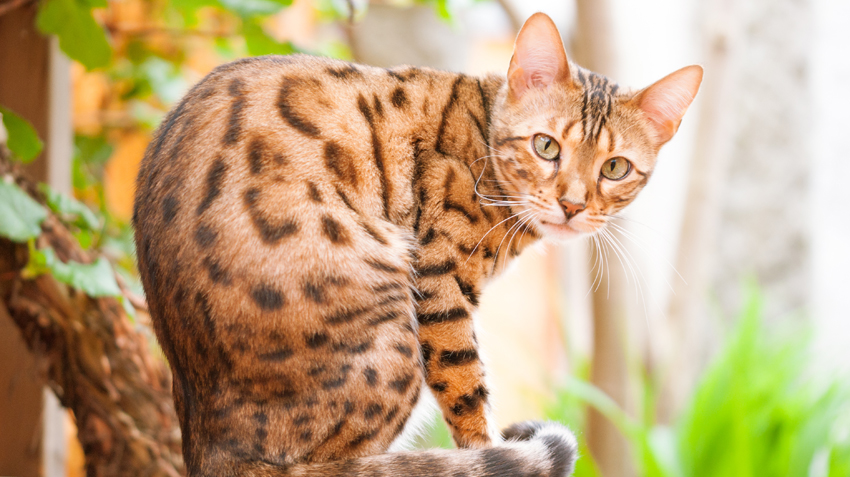Exotic pets, encompassing a diverse array of non-traditional companions such as reptiles, birds, and small mammals, have witnessed a surge in popularity. As these unique creatures find their way into households, the need for specialized care becomes paramount. One crucial aspect of responsible ownership is obtaining pet insurance tailored to the distinctive needs of exotic animals. In this exploration, we delve into the nuanced considerations that define pet insurance for exotic pets, shedding light on the challenges, considerations, and evolving landscape of safeguarding the health and well-being of these extraordinary companions.
Unique Challenges of Insuring Exotic Pets
Insuring exotic pets presents a distinctive set of challenges compared to their more conventional counterparts. One primary obstacle lies in the limited availability of insurance providers equipped to address the unique requirements of exotic species. Unlike traditional pet insurance, which predominantly caters to common household pets, specialized coverage for exotic animals is a niche market.
Further complicating matters is the vast diversity among exotic pets, ranging from reptiles to birds and small mammals. Each species necessitates individualized coverage, considering their specific health risks and care needs. This diversity poses a challenge for insurance providers striving to offer comprehensive and tailored plans that cater to the varied spectrum of exotic pets.
Special Considerations in Exotic Pet Insurance
Navigating the realm of exotic pet insurance requires a keen awareness of special considerations that distinguish it from coverage for more conventional pets. One critical factor is the limited availability of veterinary expertise in exotic animals, which directly influences insurance coverage and premiums. The scarcity of specialized practitioners for these unique species contributes to the complexity of crafting comprehensive insurance plans.
Additionally, exotic pet insurance must account for non-traditional treatments that these animals may require. Unconventional medical procedures, rehabilitation, and alternative therapies form a crucial aspect of their healthcare, demanding a more flexible and expansive coverage framework.
The inherent health risks associated with exotic species further underline the need for specialized insurance. Zoonotic diseases, public health concerns, and species-specific health issues necessitate a nuanced understanding by both pet owners and insurance providers to ensure adequate protection.
Cost Factors and Premium Determinants
The financial landscape of insuring exotic pets is shaped by a multitude of factors, each influencing the cost and determinants of insurance premiums. The rarity and monetary value of the exotic pet itself weigh heavily in the calculation, with unique and high-value species often commanding higher insurance costs.
The age, lifespan, and reproductive considerations of exotic pets play a pivotal role. As these factors vary widely among species, insurance providers must carefully assess the potential risks and healthcare needs associated with different life stages.
Geographical location and environmental factors also come into play. The accessibility of veterinary care, prevalence of certain diseases, and climate-related considerations can impact the overall health and well-being of exotic pets, influencing insurance costs accordingly.
Furthermore, the customization of coverage options adds complexity. Insurance plans for exotic pets typically offer a range of choices, including coverage for accidents, illnesses, preventive care, emergency situations, and specialized treatments. Each option introduces a layer of variability, allowing owners to tailor their insurance to the specific needs of their unique companions.
Education and Communication
Education and effective communication form the bedrock of responsible exotic pet ownership and the successful implementation of insurance coverage. Informing pet owners about the imperative need for specialized insurance is a crucial aspect of this process. As the unique challenges and healthcare requirements of exotic pets differ significantly from those of conventional animals, educating owners becomes pivotal in fostering a deeper understanding of the responsibilities associated with caring for these extraordinary companions.
Clear and transparent communication of policy terms and limitations is equally essential. Exotic pet insurance often involves nuanced coverage details, and ensuring that pet owners comprehend the intricacies of their policies is vital for making informed decisions. This communication extends beyond the initial policy acquisition, encompassing ongoing updates and information dissemination to keep owners abreast of any changes or developments in the insurance landscape.
Regulatory Environment
The regulatory landscape surrounding exotic pet ownership and insurance is characterized by a diverse array of rules and guidelines that vary across jurisdictions. Given the unique nature of exotic pets, authorities often implement specific regulations to ensure the welfare of these animals and address potential public safety concerns.
Navigating compliance requirements for insurance coverage becomes a critical consideration in this complex regulatory environment. Exotic pet insurance providers must align their offerings with the prevailing legal frameworks, which can differ significantly from standard pet insurance regulations. This adherence is essential to guarantee that insurance policies meet the mandated standards and obligations, fostering a responsible and ethical approach to exotic pet ownership.
The evolving nature of regulations also underscores the need for advocacy in standardizing guidelines across regions. Harmonizing exotic pet ownership and insurance regulations could streamline the industry, ensuring consistent standards that benefit both pet owners and insurance providers. Moreover, such advocacy efforts can contribute to the establishment of ethical practices and the promotion of responsible exotic pet ownership on a broader scale.
Future Trends and Innovations
Looking ahead, the landscape of exotic pet insurance is poised for transformation through emerging trends and innovations. Advances in veterinary care specifically tailored to exotic species are anticipated, offering more sophisticated and effective treatment options. This progression is likely to influence insurance coverage, enabling policies to encompass cutting-edge medical interventions that contribute to the overall well-being of exotic pets.
Conclusion
In conclusion, the realm of pet insurance for exotic pets stands at the intersection of evolving responsibilities, unique challenges, and promising innovations. The surge in popularity of these extraordinary companions has brought to light the imperative need for specialized insurance coverage, acknowledging the distinctive healthcare requirements and potential risks associated with diverse species.
